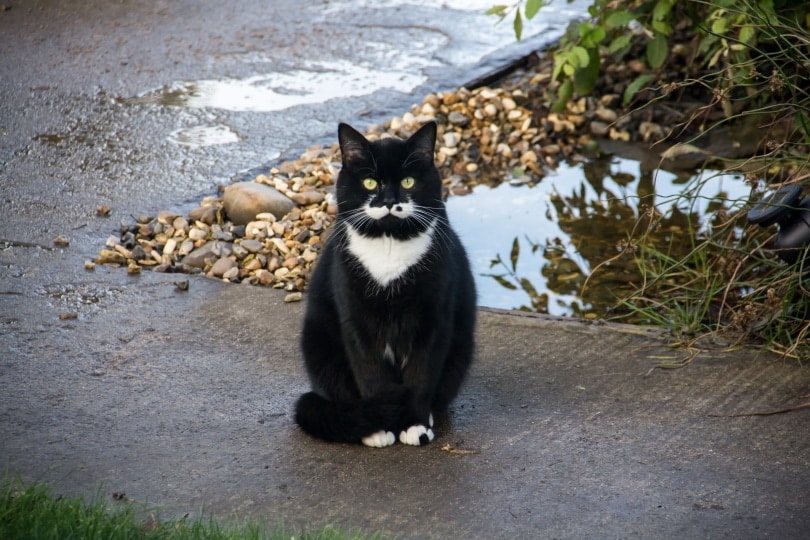Both cats and dogs age faster than humans. When a cat or dog has only been alive for a few years, they are considered adults. By the time they reach their teens, they are usually considered elderly. However, cats do not age as dogs do. This is because of the high variability in dog sizes that we can find. Cats tend to live longer than most large and giant dogs because the larger the dog is, the quicker they will age.1
So, do cats age differently than dogs? What things play a role in how your cat ages? Should we be trying to figure out how old our cats would be in “human ages” as time passes? Cats’ aging rate is slower when compared to large and giant dog breeds, and they typically live much longer. What is remarkable is that, for their small size, cats live quite a long time. Generally speaking, some smaller animals tend to live shorter lives than larger ones. These are all great questions that deserve thorough answers, so we put together a little gfocusingcuses on these topics and more.
Cats Age Differently Than Dogs
Cats and dogs do age at different rates, which is why cats tend to live longer than dogs. A dog’s genetic makeup plays a role in how long they live, just like a cat does. Since the genetic madifferserent between cats and dogs, you can expect the two species to age slightly differently. Dogs tend to grow faster and larger than cats, which means that their bodily processes work faster.
So, in the end, a dog can live for anywhere from 8 to 14 years (sometimes shorter or longer, depending on their breed, size, lifestyle, and medical history), while a cat can live up to 15 to 18 years of age. Some cats have even been known to see their 20th birthdays. Cats that live indoors tend to have longer lifespans than cats that live outdoors, where accidents and illnesses are much more of a threat.

Calculating a Cat’s Age in Human Terms
Calculating a cat’s age requires that you know at least the year in which the cat was born. Otherwise, you can work with a veterinarian to try to determine how old the cat is. If you do know the cat’s birthday, you should be able to gain a good idea of their age in terms of human years.
There are tables created by experts to show the correlation between cats’ life stages and the equivalent human age. When a cat reaches the age of 2, it is thought that they are about 24 human years old. After the age of 2, a year of cat life is equal to 4 years of human life. Therefore, by the time that your cat is 5 years old, they would be the equivalent age of a human who is 36 years old. Cats that live into their teens are the equivalent age of humans who are in their 70s!

Signs of Aging in Cats
Understanding how old your cat is does not tell a complete picture of how old their bodies are or how old they might live to be. Cats do not show signs of aging the same way that dogs do, but they can display behaviors and physical changes that could mean your cat is getting older.
Some cats start to lose weight and muscle mass once they reach their senior years. This loss can be tough for owners to spot because they see their cats every day, and the changes are subtle and happen over weeks if not months.
Behavioral changes are also usually displayed when a cat gets older and starts to wind down from a life of fun and excitement. An older cat may be less excited when you walk in the door at the end of a long day. They might walk slower, stiffer, or be reluctant to jump up and down as before. They might seem more cautious when people come to their homes for a visit. They will probably be less curious and playful, too.
In Conclusion
Cats and dogs age differently due to genetic and bodily differences. Cats usually live longer than dogs and can reach the ripe old age of 20, which is impressive. Having regular health checks with your vet, being vigilant for signs of disease, vaccinating and protecting your dog against parasites, having a good diet, exercising regularly, and staying away from danger all can impact the lifespan of a cat. Cats that live outdoors are more susceptible to illness and accidents, so unfortunately, they don’t typically live as long as cats living strictly indoors.
Featured Image Credit: New Africa, Shutterstock











